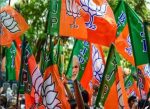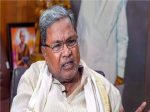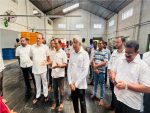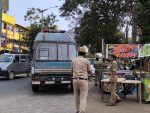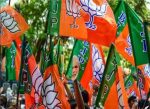
Modi-Morrison online summit: India Australia ink landmark defense pact
PTI, Jun 4, 2020, 2:18 PM IST

New Delhi: India and Australia on Thursday, June 4 inked a landmark agreement for reciprocal access to military bases for logistics support besides firming up six more pacts to further broad base ties after Prime Minister Narendra Modi and his Australian counterpart Scott Morrison held an online summit.
The Mutual Logistics Support Agreement (MLSA) will allow militaries of the two countries to use each other’s bases for repair and replenishment of supplies besides facilitating scaling up of overall defense cooperation.
India has already signed similar agreements with the US, France and Singapore.
The other pacts will provide for bilateral cooperation in areas of cyber and cyber-enabled critical technology, mining and minerals, military technology, vocational education, and water resources management.
In the talks, the two sides also deliberated on a host of key issues including dealing with the growing threat of terrorism, maritime security challenges in the Indo-Pacific region, reform in the World Trade Organisation and ways to deal with the coronavirus crisis.
According to a joint statement issued after the Modi-Morrison talks, both sides discussed the issue of taxation of offshore income of Indian firms through the use of the India-Australia Double Taxation Avoidance Agreement (DTAA) and sought early resolution of the issue.
It said that both sides also decided to re-engage on a bilateral Comprehensive Economic Cooperation Agreement (CECA) while suitably considering earlier bilateral discussions where a mutually agreed way forward can be found.
The two countries recognized that terrorism remains a threat to peace and stability in the region and strongly condemned the menace in all its forms and manifestations, stressing that there can be no justification for acts of terror on any grounds whatsoever.
The joint statement said both sides support a comprehensive approach in combating terrorism, including by countering violent extremism, preventing radicalization, disrupting financial support to terrorists, and facilitating the prosecution of those involved in acts of terror.
The two sides also called for early adoption of a Comprehensive Convention on International Terrorism (CCIT).
In his opening remarks, Modi also pitched for a coordinated and collaborative approach to come out of the adverse economic and social impact of the epidemic that has infected around 65 lakh people and killed 3.88 lakh globally.
He said that a process of comprehensive reforms covering almost all areas has been initiated in India as his government viewed the coronavirus crisis as an “opportunity”.
Referring to the virtual summit, the prime minister termed it “a new model of India-Australia partnership, a new model of conducting business”. It was the first time that Modi held a “bilateral” virtual summit with a foreign leader.
The prime minister described his talks with Morrison as “an outstanding discussion”, covering the entire expanse of ties between the two strategic partners.
“Our government has decided to view this crisis as an opportunity. In India, a process of comprehensive reforms has been initiated in almost all areas. It will soon see results at the ground level,” the prime minister said. Modi also conveyed his appreciation to Morrison for taking care of the Indian community in Australia, especially the students during the “difficult time”.
In his remarks, Morrison complemented Modi for his “constructive and very positive” role including at the G-20 role in pushing for a concerted global approach in dealing with the coronavirus crisis.
Modi said that he believed that it is the “perfect time and perfect opportunity” to further strengthen the relationship between India and Australia.
“We have immense possibilities to make our friendship stronger,” Modi said, adding: “How our relations become a ‘factor of stability’ for our region and for the world, how we work together for global good, all these aspects need to be considered.”
The prime minister said that India was committed to expand its relations with Australia on a wider and faster pace, noting that it is important not only for the two countries, but also for the Indo-Pacific region and the world.
“The role of our comprehensive strategic partnership will be more important in this period of the global epidemic. The world needs a coordinated and collaborative approach to get out of the economic and social side effects of this epidemic,” he said.
Udayavani is now on Telegram. Click here to join our channel and stay updated with the latest news.
Top News
Related Articles More
MUST WATCH
Latest Additions

LS polls PM Modi asks people to vote in record numbers

Our nerves got tested, says MI skipper Pandya after close win over PBKS

Lok Sabha Polls 2024: JD(S) & BJP will form coalition govt in Karnataka again: H D Kumaraswamy

Youth detained for Facebook threat to BJP MLA in Nashik

NE’s integration with rest of India happened under Modi govt: BJP chief Nadda












